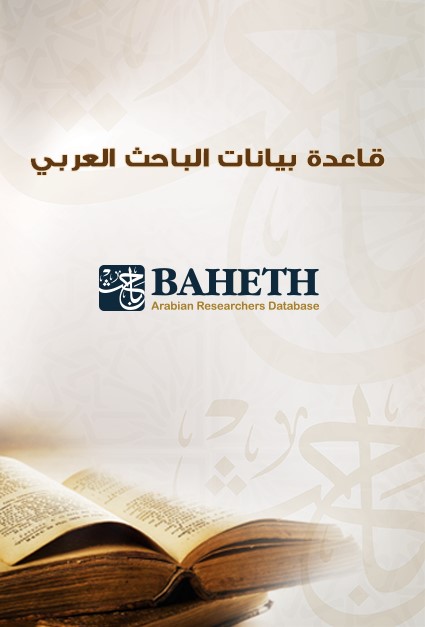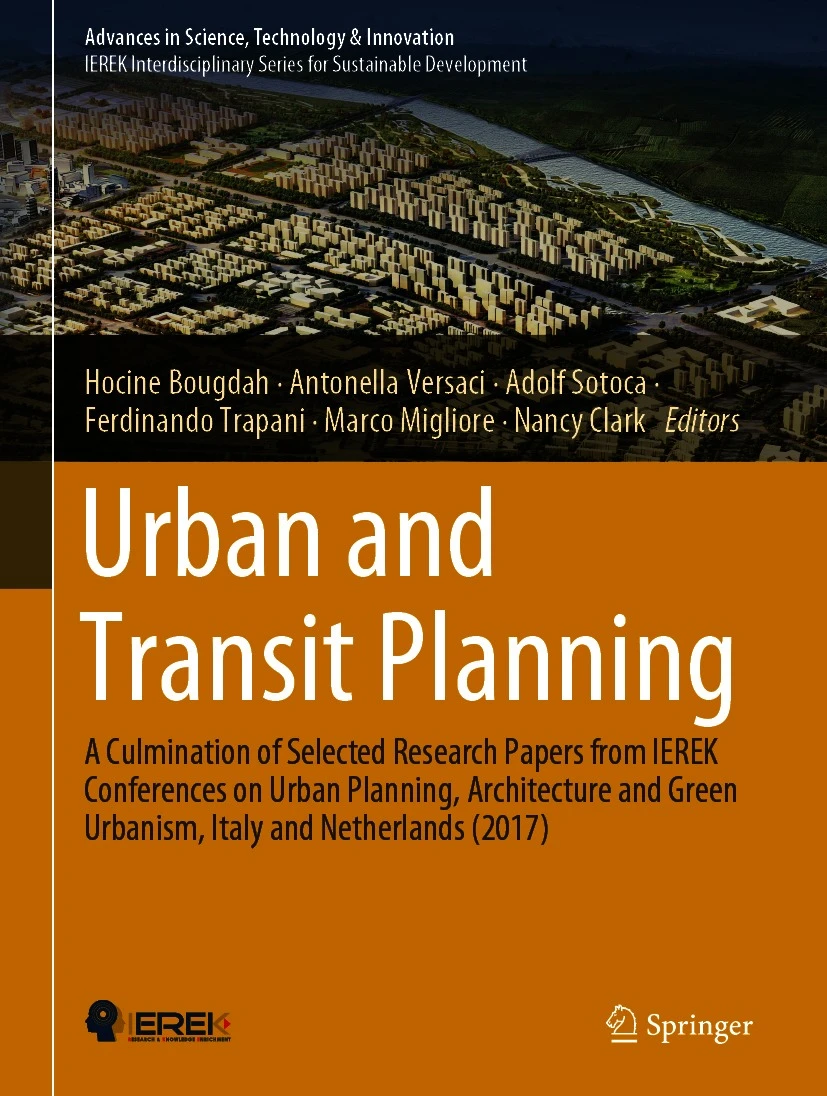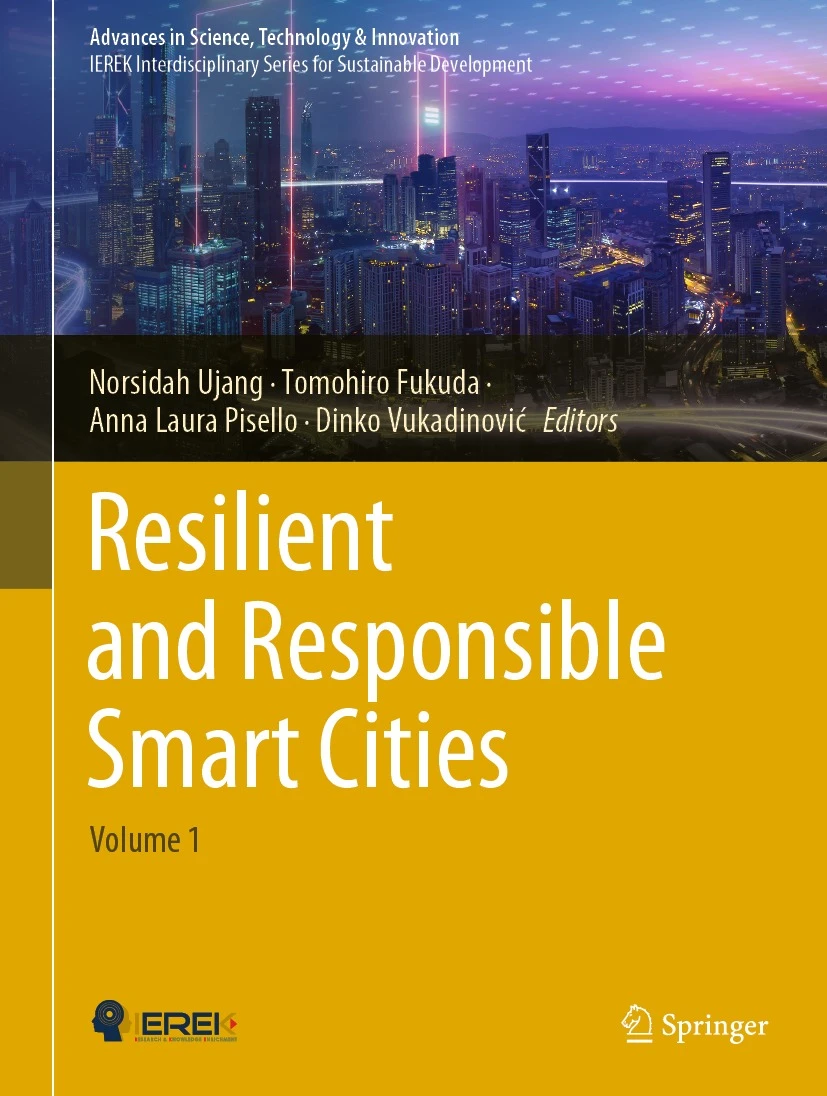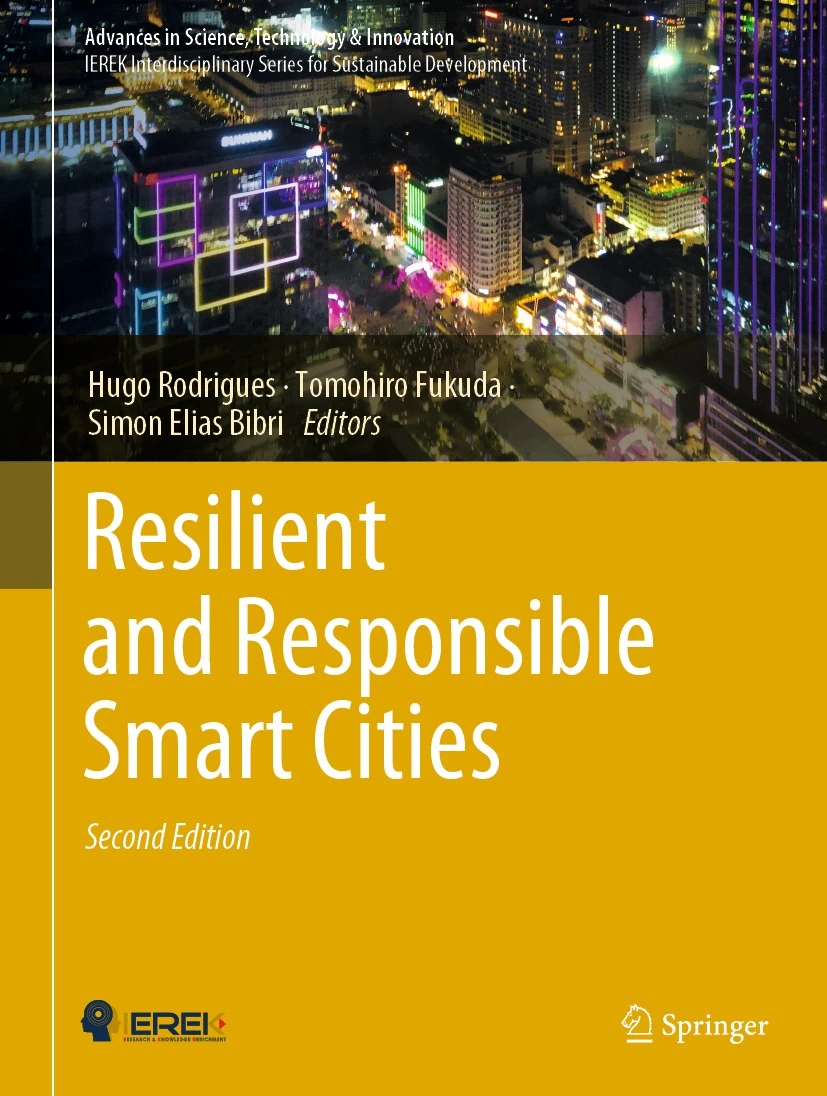Environmental Integration on ...
Online Conference
10 Apr 2025 / 12 Apr 2025 read more


Associate professor at Energy Engineering Department, German Jordanian University (GJU), Jordan.
Haidy Ahmed
Conference Coordinator
[email protected]
(+20) 3 5763827 | (+20) 3 5763828
(+20)1000028021
Subscribe to our newsletter
In an era of rapid urbanization and increasing environmental challenges, it has become crucial to rethink the design of cities, and to construct and manage our built environments. The RRAU conference provides a platform for professionals and academics to exchange knowledge, share innovative ideas, and foster collaborations that can shape the future of architecture and urbanism.
Resilient architecture and urbanism emphasize on the ability of cities, communities, and buildings to withstand and recover from shocks, design implications, and stresses, whether they are caused by natural disasters, climate change, social upheavals, or economic challenges. With integrating resilience into the design practices, more adaptive, sustainable, and inclusive cities that can thrive in the face of adversity can be created.
Responsible architecture and urbanism aim to address the social, cultural, economic, and environmental impacts of our built environment. It involves designing spaces that promote equity, diversity, and social cohesion, minimizing resource consumption and waste, and preserving and enhancing the natural and cultural heritage of our cities. Through responsible practices, more livable, harmonious, and ethical urban environments can be built that meet the needs of the present and future generations.
RRAU will explore a wide range of topics related to resilience and responsibility in architecture and urbanism, sustainable building design, construction technologies, and urban planning strategies that promote social equity and inclusivity, innovative approaches to energy efficiency and renewable technologies, the integration of nature in urban environments, and many other cutting-edge research and practical applications.
The 6th International Conference on Resilient and Responsible Architecture and Urbanism (RRAU) is a gathering of experts, researchers, practitioners, and enthusiasts from around the world to explore and discuss the vital topics of resilience and responsibility in architecture and urban development. It features keynote speeches, panel discussions, paper presentations, workshops, and networking opportunities and encourages participants to actively engage in dialogue, exchange experiences, and contribute their unique perspectives to the ongoing discourse on building resilient and responsible cities.
1.1. Zero-energy buildings: Concepts, strategies, and case studies
1.2. Passive design principles for energy-efficient buildings
1.3. Sustainable materials and construction practices
1.4. Green building certifications and standards
1.5. Retrofitting existing buildings for energy efficiency
2.1. Urban resilience strategies in the face of climate change
2.2. Disaster preparedness and reconstruction
2.3. Promoting social equity and inclusivity in urban planning
2.4. Sustainable transportation and mobility solutions
2.5. Participatory planning and community engagement
2.6. Urban regeneration and revitalization of distressed areas
3.1. Integrating nature into urban environments
3.2. Biophilic design principles and benefits
3.3. Urban green spaces and biodiversity conservation
3.4. Vertical gardens and living walls in urban settings
3.5. Urban agriculture and food production in cities
4.1. Implementing circular economy principles in architecture and urbanism
4.2. Waste reduction and recycling in the built environment
4.3. Sustainable water management and conservation
4.4. Life cycle assessment in building design and construction
4.5. Sustainable urban infrastructure and utilities
5.1. Designing resilient infrastructure for natural disasters
5.2. Climate-responsive urban drainage and flood management
5.3. Earthquake-resistant building design and retrofitting
5.4. Resilient transportation systems and critical infrastructure
5.5. Disaster risk reduction and emergency preparedness in cities
6.1. Architecture as a catalyst for social change and community empowerment
6.2. Affordable housing and inclusive residential design
6.3. Cultural preservation and heritage conservation in urban development
6.4. Accessible design for people with disabilities
6.5. Architecture and public health: Designing healthy cities
7.1. Building information modeling (BIM) for sustainable design and construction
7.2. Internet of Things (IoT) applications in urban environments
7.3. Smart energy management and grid integration
7.4. Data-driven urban planning and decision-making
7.5. Smart transportation systems and intelligent mobility solutions
8.1. Coastal resilience and adaptation to sea-level rise
8.2. Sustainable waterfront design and development
8.3. Blue and green infrastructure for coastal cities
8.4. Integrated coastal zone management
8.5. Waterfront regeneration and public spaces
9.1. Net-zero energy buildings and districts
9.2. Renewable energy integration in urban environments
9.3. Energy-efficient lighting and HVAC systems
9.4. Energy modeling and simulation in building design
9.5. Energy storage solutions for sustainable cities
10.1. Collaborative governance and multi-stakeholder partnerships
10.2. Social entrepreneurship in urban development
10.3. Participatory design and co-creation in community projects
10.4. Innovative financing models for sustainable urban development
10.5. Case studies on successful social innovation in cities
| Title | Date |
|---|---|
| Abstract Submission Deadline | 25 Oct 2024 |
| Last Notification for Abstract Acceptance & Approval to present | 30 Oct 2024 |
| Early Payment Deadline Date | 30 Jul 2024 |
| Regular Payment Deadline Date | 20 Oct 2024 |
| Late Payment Deadline Date | 20 Nov 2024 |
| Extended Abstract / Short Paper Submission Deadline | 30 Oct 2024 |
| Notification of acceptance/ rejection of submitted extended abstract/ short paper | 1 Nov 2024 |
| Conference Program | 05 Nov 2024 |
| Conference Launch | 08 Dec 2024 |
We recommend that all authors take advantage of the benefits that IEREK offers, including various attendance types, publishing opportunities, and opportunities for discounts and waivers.
We are pleased to inform all applicants that they can use their previous publications to register for an IEREK membership, which offers a special discount.
IEREK offers a special discount to applicants from collaborative universities that have signed an MoU with IEREK to host or co-host one of its conferences.
IEREK also provides special discounts to authors from low and medium-income countries.
IEREK offers many alternative venues for publication. All accepted submissions to the conference, after a rigorous double-blinded peer-review process by the respective and highly-distinguished Editorial Board, will be published through one of the following venues:
Selected papers (according to the preference of the author) will be published in one of the Scopus-indexed or Web of Science-indexed book series or through related journal special issues. See the publishing opportunities section.
Accepted papers (according to the preference of the author) will be published through the Springer book series or through a special issue in one of the IEREK press open-access Journals.
IEREK offers many types of registrations that are diverse in registration fees; applicants can choose the type they are familiar with as follows:
Participants who are PhD holders, post-doctoral researchers, and universities’ affiliated professors and experts in the field.
Must provide proof of enrollment in a university by providing an enrollment certificate and/or a valid university ID (with issue/expiry date) etc.
Participants who are not affiliated with universities such as practitioners, policymakers, entrepreneurs, etc.
Have access to the event to enjoy the discussions, coffee breaks, and lunch as a co-author or audience.
An author may need to attend the conference for presentation only to present a research idea without publication or full paper submission; the fee in this case will be decreased.
| Type of Registration | Early Payment Deadline 30 July 2024 |
Regular Payment Deadline 20 Oct 2024 |
Late Payment Deadline 20 Nov 2024 |
|---|---|---|---|
| Scopus indexed-ASTI Book by Springer | |||
| Student | 250 € | 300 € | 350 € |
| Academic | 300 € | 350 € | 400 € |
| Professional | 350 € | 400 € | 450 € |
| Co-author/ Audience | 100 € | 150 € | 200 € |
| SLNR Book by Springer | |||
| Student | 200 € | 250 € | 300 € |
| Academic | |||
| Professional | |||
| Co-author/ Audience | 100 € | 150 € | 200 € |
| Open Access IEREK Press Journals | |||
| Student | 150 € | 200 € | 250 € |
| Academic | 200 € | 250 € | 300 € |
| Professional | 250 € | 300 € | 350 € |
| Co-author/ Audience | 100 € | 150 € | 200 € |
IEREK offers virtual attendance, providing authors with a unique link to join the conference sessions and present their papers as per the announced program.
IEREK is dedicated to optimizing the benefits for virtual attendance IEREK also provides two venues for publication, which are:
Type 1:
Online attendance + Publication through Scopus and Web of Science indexation Through IEREK – Springer Nature Interdisciplinary book series “Advances in Science, Technology, and Innovation” ASTI, see previous publications here! here.
Type 2:
Online attendance + Publication through Springer Nature's new book series (to be indexed in Scopus soon). Through IEREK – Springer Nature Interdisciplinary book series” Sustainable Landscape Planning, and Natural Resources Management” SLNR.
Online attendance + Publication through Open-access IEREK press Journals, (to be indexed soon in Web of Science and afterward in Scopus).
The online fee covers:
* Each research paper should have one main author who should pay the full fee (Author fees) regardless of attendance.
* Co-authors, each, have their fees to pay to attend the event. This applies to online attendance.
* Participants can use only one type of discount opportunity, which meets their preferences.
* Authors should contact the conference manager through this email [email protected] to consider the discount and waiving for all the above cases so that the conference manager can provide an exclusive invoice for each case.
| Afghanistan, Algeria, Angola, Bangladesh, Benin, Bhutan, Bolivia, Burkina Faso, Burundi, Cabo Verde, Cambodia, Cameroon, Central African Republic, Chad, Comoros, Congo, Congo Dem. Rep., Côte d'Ivoire, Djibouti, Egypt, Eritrea, Eswatini, Ethiopia, Gambia, Ghana, Guinea, Guinea-Bissau, Haiti, Honduras, India, Iran, Jordan, Kenya, Kiribati, Kyrgyz Republic, Lao PDR, Lebanon, Lesotho, Liberia, Madagascar, Malawi, Mali, Mauritania, Micronesia, Mongolia, Morocco, Mozambique, Myanmar, Nepal, Nicaragua, Niger, Nigeria, Pakistan, Papua New Guinea, Philippines, Rwanda, Samoa, São Tomé and Principe, Senegal, Sierra Leone, Solomon Islands, Somalia, South Sudan, Sri Lanka, Sudan, Syria, Tajikistan, Tanzania, Timor-Leste, Togo, Tunisia, Uganda, Ukraine, Uzbekistan, Vanuatu, Vietnam, Yemen, Zambia, Zimbabwe |
iDirect is a new and efficient platform that allows direct submissions of research papers across various fields of science. iDirect accepts and covers all fields of science, not only those related to a particular conference. Individual authors are encouraged to submit their research discussing new ideas and presenting solutions to everyday problems that fall under numerous scientific themes. The iDirect platform is integrated into the peer review system for online conferences. You can publish your work through iDirect without the need to attend the conference or adhere to any submission deadlines. iDirect accepts a wide range of disciplines, eliminating the need to align with the conference's specific theme or scope. Based on the scope of your research, we will identify the most relevant proceedings for publication. The editor will schedule a discussion with you to review your presentation before proceeding to the peer-review process. Learn more here!
IEREK puts a lot of effort into expediting the peer review process to publish articles as quickly as possible. This requires prompt responses from all authors to the editors' comments, if any. Your swift response is highly appreciated to advance the production process and get your articles online. We prioritize the first author to respond as per our formula. The conference proceedings will be divided into multiple books, with the first one scheduled for publication within 3 months after the conference date. We encourage all authors to aim for publication in the first release.
Attending a conference dramatically enhances both your professional and personal development. They help you sharpen the saw, meet and converse with industry experts, expand your resources and grow your professional network. IEREK Conference will help you:
1. Open Discussions: We bring together leading academic scientists, from different universities and countries, to exchange and share their experiences and research results.
2. Internationally Accredited Certificate: The participants are granted internationally recognized certificates acknowledged by IEREK, the University, and Partnering Organizations.
3. Publication: Selected high-quality manuscripts will be published, after peer review, in the Advances in Science, Technology & Innovation (ASTI) book series by Springer or by IEREK Press Journals, both of which are indexed in world-renowned databases.
4. Research Technologies: Conferences can expand your resources by providing a great opportunity to promote gathered information on new technologies related to your research.
5. Networking: You can engage with industry experts to discuss with them the very latest research projects they could be working on and increase your chances of collaboration in future projects.
6. Academic Reputation: Attending many conferences will make you a known figure in academic circles and an active member of the academic community.
7. Conference Abstracts Material: Delegates will receive the conference Abstracts book in both hardcover and digital format on a CD. Shipping fees may apply.
All accepted submissions to the conference, after a rigorous double-blinded peer-review process by the respective and a highly-extinguished Editorial Board, will be published in one of the following:
 Advances in Science, Technology and Innovation (ASTI), an IEREK Interdisciplinary book series published by Springer Nature. (Scopus indexed)
Advances in Science, Technology and Innovation (ASTI), an IEREK Interdisciplinary book series published by Springer Nature. (Scopus indexed) About ASTI
Advances in Science, Technology & Innovation (ASTI) is a series of peer-reviewed books based on important emerging research that redefines the current disciplinary boundaries in science, technology and innovation (STI) in order to develop integrated concepts for sustainable development. It not only discusses the progress made towards securing more resources, allocating smarter solutions, and rebalancing the relationship between nature and people, but also provides in-depth insights from comprehensive research that addresses the 17 sustainable development goals (SDGs) as set out by the UN for 2030.
The series draws on the best research papers from various IEREK and other international conferences to promote the creation and development of viable solutions for a sustainable future and a positive societal transformation with the help of integrated and innovative science-based approaches. Including interdisciplinary contributions, it presents innovative approaches and highlights how they can best support both economic and sustainable development, through better use of data, more effective institutions, and global, local and individual action, for the welfare of all societies. The series particularly features conceptual and empirical contributions from various interrelated fields of science, technology and innovation, with an emphasis on digital transformation, that focus on providing practical solutions to ensure food, water and energy security to achieve the SDGs. It also presents new case studies offering concrete examples of how to resolve sustainable urbanization and environmental issues in different regions of the world. Read More.
The ASTI series is fully indexed in Scopus and any chapter/ paper published as part of this series will be seen on the Scopus database. Some titles have been successfully indexed or submitted for indexation in Web of Science (ISI).
About SLNR
Sustainable Landscape Planning and Natural Resources Management (SLNR) is a peer-reviewed book series that presents groundbreaking research through the intersection of two main areas that of which are ‘Sustainable Landscape Planning’ and ‘Natural Resources Management’. The series initially covers a wide range of academic disciplines in sustainability, including landscape ecology, green urbanism, urban regeneration, land restoration and renaturation, energy management, and nature conservation. Moreover, it also incorporates the latest developments and research in engineering topics that contribute to more sustainable cities, such as Geosciences, infrastructure, civil engineering, geology, mining, water, and natural resources conservation and management.
By showcasing methods for discovering, managing, and employing natural resources, the series aims to provide approaches that enable the responsible use of these resources. Ultimately, the SLNR series is committed to advancing the United Nations' Sustainable Development Goals for 2030. Read More.
 IEREK Press Journals, a multidisciplinary publisher that aims to cultivate and disseminate research.
IEREK Press Journals, a multidisciplinary publisher that aims to cultivate and disseminate research.
ESSD is a peer-reviewed, scholarly journal that aims to systematically develop the research-driven curiosity and evidence-based discourse of aspiring scholars that seek to contribute to the academic community. As the world is currently living in an age of information where sources are widely available on the Internet, we at ESSD seek to efficiently utilize the available information to help create robust and evidence-based knowledge. In the process, we offer researchers, in general, and young and aspiring ones in particular a quicker way to get their work published and gain exposure through online open access. We pride ourselves on getting submitted work to be published quickly, through the use of our worldwide pool of subject specialist peer reviewers. Find out more about ESSD International Journal here.

ARChive is an open-access journal that publishes conference proceedings on a wide range of topics relating to social sciences. Consequently, it accepts original research papers on a wide spectrum of subjects. ARChive is a journal published on behalf of researchers that perpetually make an effort to contribute to their fields and provide them with high visibility of research submitted. The series publishes, both, theoretical and experimental high-quality papers of current and perpetual interest. It serves to cultivate, propagate, and essentially archive academic research that has been authored and submitted for academic conferences.
Find out more about ARChive International Journal here.

Resourceedings is an open access journal that publishes conference proceedings. Conference proceedings compromise of different disciplines, ranging from Engineering including built environments, architecture, and sustainability. Disciplines also include Technology and Energy. Resourceedings is a journal that publishes research articles that shed light on different crucial issues in order to provide them with solutions and suggestions. The journal publishes articles submitted by researchers of interest in different fields.
Find out more about Resourceedings International Journal here.

“BAHETH” in Architecture, Engineering, and Technology, is a peer-reviewed journal that publishes original academic research in the fields of Architecture, Engineering, and Technology. The journal welcomes research in the Arabic Language with an English Abstract. Papers submitted to this journal in Arabic must be presented in the English Language in the conference.
Find out more about BAHETH International Journal here.
IEREK has an unyielding policy regarding plagiarism. We believe that copying/taking the ideas and work of other Authors without permission and credit is fraudulent. The Reviewing committee and IEREK employees have the authority to reject a paper during its reviewing process, based on the paper being subjected to either minor or major plagiarism.
Authors must refer to, and abide by, the following instructions in submitting their abstracts/ papers:
This is not a prerequisite for presenting your work at the conference. Meaning, you can present your submitted abstract without intending to publish your work.
This process can only be initiated after payment completion and confirmation:
Attending a conference dramatically enhances both your professional and personal development. They help you sharpen the saw, meet and converse with industry experts, expand your resources and grow your professional network. IEREK Conference will help you:
- The Print ISSN for “ Resilient and Responsible Architecture and Urbanism ” is 2636-3771.
- The Online ISSN for “ Resilient and Responsible Architecture and Urbanism ” is 2636-378x.
Registration
To help the organizers plan for inter-disciplinary dialogue, participants are requested to choose from the conference themes/ Topics upon registration.
They must also refer to, and abide by, the following instructions in registering and submitting their abstracts/ papers:
Types of Participation
Organized from the comfort of your own home, the conference offers a virtual attendance option for your convenience. That said, participants will have a chance to present their abstract/research, online, and have their work considered for publication in the proceedings.
Virtual presenters are required to submit an abstract and extend this abstract following the “author instructions” below and before the deadline (see Important Dates). At least one author must pay the registration fee (see Conference Fees).
For any reason, authors may wish to submit pre-recorded video presentations no later than 15 days prior to the conference. Alternatively, they may wish to record a voice-over PowerPoint presentation for submission to the conference organizers.
Organized at the University of Portsmouth, UK, offering a Physical attendance option for your convenience. That said, participants will have a chance to present their abstract/research, on campus, and have their work considered for publication in the ASTI Series by Springer as part of the conference proceedings.
See Author Instructions and Conference Fees for more information.
If your extended abstract (short paper) is accepted, it may be published in the conference proceedings book in the Advances in Science, Technology & Innovation Book Series by Springer (indexed in Scopus) even if you are not attending the conference. In this case, the accepted work will not be included in the final conference program and the fee will cover the cost of editorial handling and peer-review evaluation of your paper (See Author Instructions and Publishing Opportunities)
Non-presenting participants may also wish to attend the conference as Audience Members or Co-authors contributing to an already submitted abstract/ paper.
For IEREK's Previous Publications, Please Click here
- 1-Resilient and Responsible Architecture and Urbanism (RRAU) – 1 st edition, 2018.

- 2-Resilient and Responsible Architecture and Urbanism (RRAU) – 2 nd edition, 2019.

- 3-Resilient and Responsible Architecture and Urbanism (RRAU) – 3 rd edition, 2020.

- 4-Resilient and Responsible Architecture and Urbanism (RRAU) - 4th Edition, 2021.

ORCID, which stands for Open Researcher and Contributor ID, is a global, not-for-profit organization that aims to provide unique identifiers for authors, researchers, and scholars. ORCiD effectively eliminates duplication and errors regarding author names, affiliations, previous works, and all related academic data.
IEREK is a proud member of ORCiD, and we contribute directly to their initiative of clear and identifiable markers for researchers and scholars. As the first Egyptian partner to ORCiD in the organization’s history, we strongly believe that by utilizing ORCiD’s database and verification services, we become one step closer to achieving an accurate, and identifiable academic landscape.
We encourage our authors to input their ORCiD ID when registering for one of our conferences, submitting an abstract, or a full paper. By doing so, you directly link your research to your identity and affiliation and can showcase your various academic efforts all in one place. By Registering your ORCiD ID, you also increase your works’ visibility and provide easy access to your entire library of research and academic activity.
Click here to learn more about ORCiD, and here to register your ORCiD ID for free.

Omar Albatayneh holds a Ph.D. in transportation engineering from the University of Wyoming. His areas of expertise include transportation asset management, pavement design and analysis, and transportation data science. His Specialties & Skills: ArcGIS, AutoCAD Civil 3D, R-Studio, SPSS, SQL, Optimization, Synchro, HCS, VISSIM, and other traffic analysis software






















Associate professor at Energy Engineering Department, German Jordanian University (GJU), Jordan.
Haidy Ahmed
Conference Coordinator
[email protected]
(+20) 3 5763827 | (+20) 3 5763828
(+20)1000028021
Subscribe to our newsletter
Join IEREK community